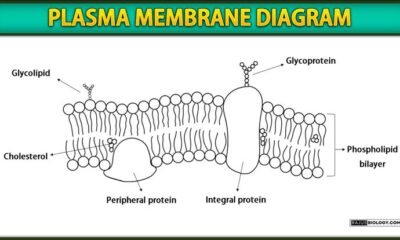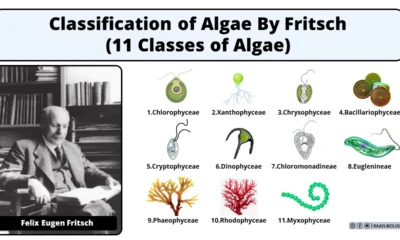Blog
Modification of Plasma Membrane | Class 11 & NEET Free Notes

In this article we will discuss about:- Microvilli, Inter digitations, Tight junction, Gap junction, Desmosomes and Plasmodesmata
What is Modification of Plasma Membrane?
- Plasma membrane shows some specialized structures
- To perform some additional functions plasma membrane shows some changes
- Free Surface Modification
- Junctional Complex
[ Must Read: Fluid Mosaic Model of Plasma Membrane ]
Free Surface Modification
Microvilli
- Minute finger like projections arising from surface of certain cells
- Single cell contains more than 3000 microvilli
- Found in epithelial cells of intestine, kidney tubules, gall bladder and hepatic cells
- Function: increase the surface area for absorption
Junctional Complex
Inter digitations
- Plasma membrane of adjacent cells project into cytoplasm as finger-like projections
- Found in lymph nodes and lymphoid tissues
- Function: increase surface area for exchange of substance between the cells
Tight junction
- Plasma membrane of adjacent cells fuses by extrinsic proteins
- Found in brain cells, gall bladder and intestinal cells
- Function: adhesion
Gap junction
- Gap junction is channel through two cell membranes across the intercellular space between two adjacent cells
- Found in cardiac muscles
- Function: conduct electrical signals & passage of ions, sugar, vitamin and metabolites
Desmosomes
- Desmosomes are thickened areas of plasma membrane of two adjacent cells
- Found in cardiac muscle and skin cells
- Function: help to glue the cells together
Plasmodesmata
- Cytoplasm of adjacent cell connected with cytoplasmic strands
- Found in plant cells
- Function: exchange of materials between two cells

 Blog8 months ago
Blog8 months ago[PPT] Human Reproduction Class 12 Notes
- Blog8 months ago
Contribution of Indian Phycologists (4 Famous Algologist)
- Blog8 months ago
PG TRB Botany Study Material PDF Free Download

 Blog8 months ago
Blog8 months agoCell The Unit of Life Complete Notes | Class 11 & NEET Free Notes

 Blog8 months ago
Blog8 months ago[PPT] The living world Class 11 Notes

 Blog8 months ago
Blog8 months agoPlasma Membrane Structure and Functions | Free Biology Notes

 Blog8 months ago
Blog8 months agoJulus General Characteristics | Free Biology Notes

 Blog8 months ago
Blog8 months agoClassification of Algae By Fritsch (11 Classes of Algae)













